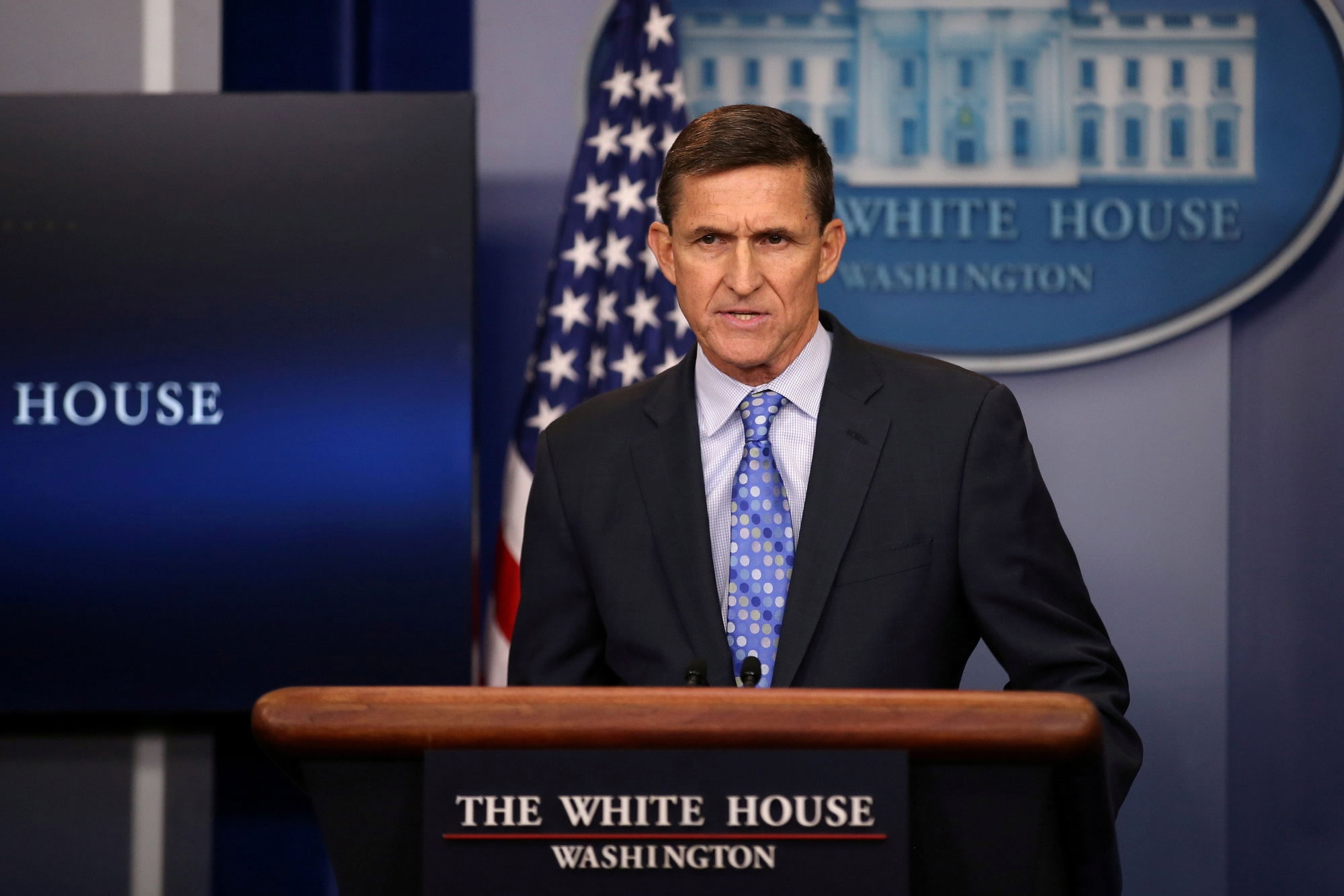Guest commentary by Zhang Xin
Michael Flynn resigned from his post as national security adviser in an unexpected manner: only 23 days into President Trump’s tenure. Flynn thus becomes the third Trump adviser, and second top Trump official, to resign over his supposed improper connections with Russia.
The resignation, especially the way it was conducted, reminds me of my own encounter with another early foreign policy advisor of Trump last July. I met this gentleman in Moscow in an informal setting, when he was invited to deliver a commencement speech at a higher education institution in Moscow. During our informal conversation, he was extremely confident that Trump would win the presidential election. No one at the table, neither the Russians nor the Americans, or the academics and businessmen, took his words seriously and privately laughed off his ridiculous persistence.

White House Press Secretary Sean Spicer (L) yields the briefing room podium to Michael Flynn in Washington, D.C. on February 1, 2017. /CFP Photo
However, in another unexpected turn of events, this gentleman very soon completely disappeared from Trump’s campaign, as the FBI began scrutinizing him on suspicion of maintaining private communications with senior Russian officials over the summer. These accusations are similar to what is now being laid on Flynn’s shoulders. The odd and awkward part of the story is that since the FBI investigation, the Trump team has openly rejected any association with this gentleman, even though mainstream US media had Trump’s words on record back in March 2016 that this gentleman was his advisor.
All this drama may turn out to be just small episodes in the chaotic team-building of the Trump administration, as well as his on-going fight with the “establishment” in both the legislative branch and the security apparatus in the US government. It might be even of secondary importance whether Russia has indeed interfered in the US presidential elections, or more broadly whether Russia has long been waging a cyber campaign against the US, or whether all these events are the result of witch-hunting as a result of the US establishment’s “Russophobic paranoia”. More important is what it implies for US-Russia relations in the long run.

Michael Flynn delivers a statement daily briefing at the White House in Washington, D.C. on February 1, 2017. /CFP Photo
The conflicts in the relationship between US and Russia are, to me, primarily of a structural nature, in the sense that individual leaders can do little to fundamentally change these constraints. The supposedly similar ideological and ideational sympathy between Putin and Trump does not translate into collegial relations, either on a personal level or at the state level. Even though a large part of Russian political elites seemed very happy about Trump’s campaign success, now there is also ample evidence that they are becoming increasingly concerned with the US political situation. Earlier they had thought it would be more difficult to deal with Hilary Clinton, who held goals and strategies which were clearly tough on Russia.
Now, with all the signs and rhetoric pointing to a possible reset or détente with Russia, Trump, his still unsettled inner circle and his on-going battle with other sections of the US state apparatus all remind Russian top elites that a more unpredictable and volatile US state machine may actually serve against Russian interests on the international stage. Flynn’s resignation could be Trump's first major defeat, more than just personnel. It may serve as a wake-up call to Russian elites too.
(Zhang Xin , Assistant Professor, School of Advanced International and Area Studies, East China Normal University, Shanghai, China. The article reflects the author's opinion, not necessarily the view of CGTN.)
11168km










